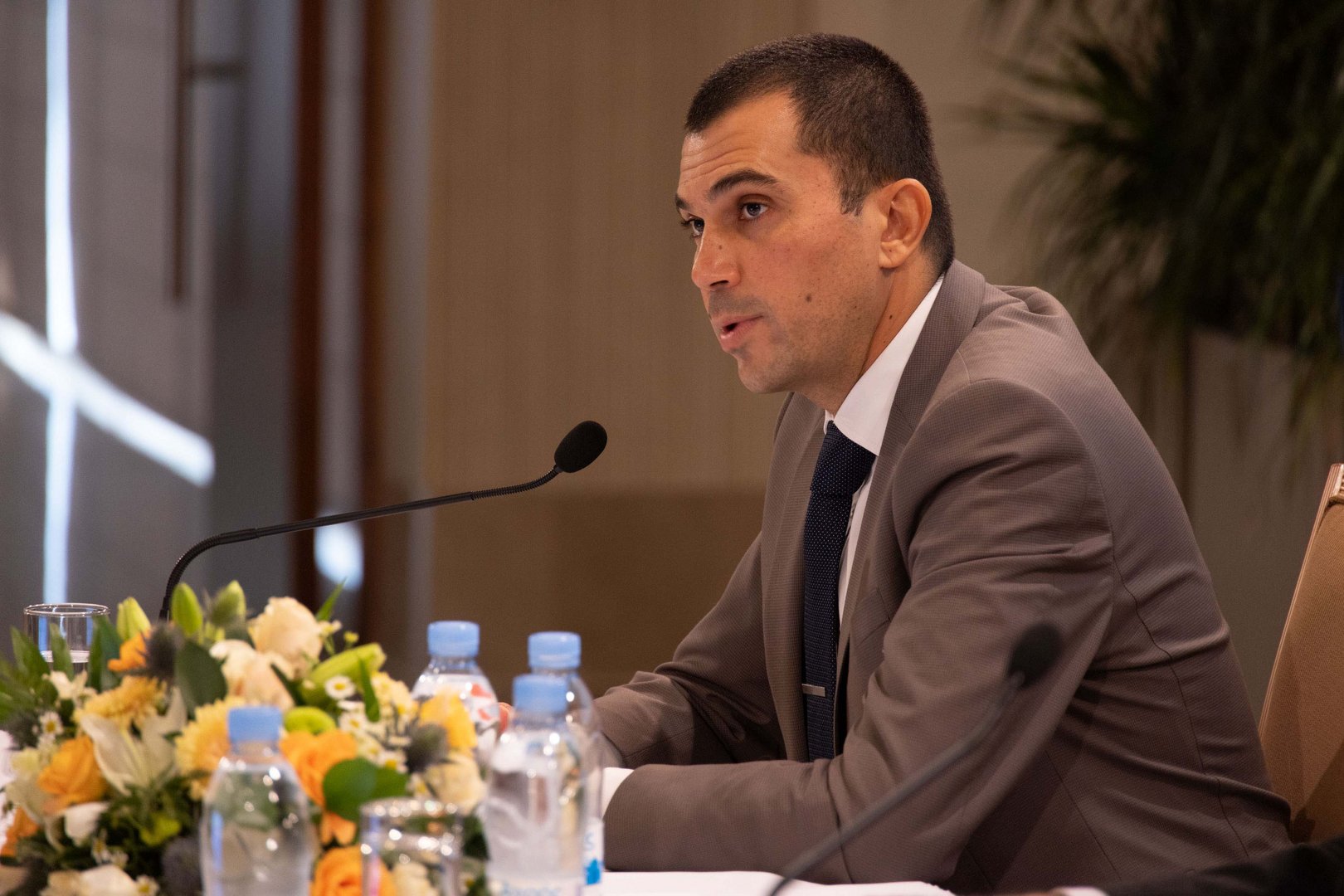The country’s tourism boss sounded a cautiously optimistic note on Thursday about the sector’s prospects in the new year, but acknowledged the looming uncertainty as European leaders in Brussels struggled to hammer out a deal on common travel rules amid the ongoing coronavirus pandemic.
Plans for Christmas celebrations in Europe and many countries across the globe have been thrown into disarray by the rapid spread of the highly infectious Omicron variant. At the summit of EU leaders, tensions arose after Italy, Portugal and Greece said they would require people crossing their borders to have a negative COVID-19 test as well as a vaccine passport.
In a news conference in Nicosia, Deputy Minister for Tourism Savvas Perdios unveiled details of the ‘national strategy for tourism’ during 2022 after two devastating years. “2022 will be a better year than 2021,” he asserted but at the same time, he described the situation as “vague” given the emergence of Omicron.
Noting that one “cannot not just hit the reset button,” Perdios said that Cyprus will regardless make all necessary preparations to improve its tourist product in order to achieve the best possible outcome.
The minister cited the fact that Cyprus was one of the first countries which was ready when the airports reopened in March 2021, and it had briefed its EU partners ahead of time about the protocols in place. The Republic was also ready when the EU introduced the new digital Covid pass.
So far this year, arrivals have reached 50 per cent of 2019 figures, while revenue was expected to come to 60 per cent of that in 2019 – the last pre-Covid year.
Arrivals between January and October 2021 reached 1,691,030, compared to 612,975 for the same period of 2020 – an increase of 175.9 per cent. But it also represented a drop of 54.3 per cent compared to January to October 2019.
October arrivals numbered 392,000 – compared to 339,000 in September, and 332,000 in August.
On average each visitor spent around €804 in the first nine months of 2021, compared to €685 in the same period of 2019.
Asked about competing markets, Perdios said that Cyprus has always had to deal with other destinations offering lower prices.
But he stressed that aim was not to sacrifice quality through lower pricing.
Looking ahead, other than the traditional markets, Cyprus aims to attract visitors from other countries such as Poland, Czech Republic, Austria, Switzerland, Jordan and France.
Perdios said that Cyprus’ new logo, ‘Love Cyprus’, is geared at locals and foreigners alike.
For 2022, the ministry has budgeted €5 million for digital marketing; the total budget for promotion and advertising comes to €25 million.
The minister referred to 12 new labels for Cyprus’ tourism product – such as Cyprus Breakfast, Taste Cyprus, Christmas Villages and Commandaria Route – saying that Cyprus wines are respected abroad and remarking that “the future belongs to us.”
Perdios also mentioned the scheme for staycations, which was embraced by Cypriots, as well as the funding given for new sunbeds and umbrellas and other projects at beach areas.
He said that more than 126,000 persons benefited from the local tourism scheme in the months of January to November 2021 – not including July to August. In July to August 2021, more than 78,000 persons benefited.
Perdios spoke of other forms of tourism such as cruise tourism, and the fact that Royal Caribbean used Cyprus as its home port. He also referred to health tourism, religious tourism, sports tourism and the fact that L’ Etape by Tour de France will be taking place in Cyprus for the next three years.
Meanwhile in Brussels the EU bloc were exploring a common approach to curbing the spread of the Omicron variant, even as deep divisions emerged especially after Italy and Greece joined Portugal in announcing additional restrictions on travellers from other EU states.
France also imposed travel restrictions on travellers from Britain on Thursday due to surging cases there.
The EU’s 27 member states have been debating for weeks how to coordinate travel policy, with the aim of containing the virus without disproportionately disrupting travel within the border-free European Schengen area.
However, Italy said on Tuesday that from December 16 until the end of January it would require all travellers from EU countries to show a negative test on arrival, even if they are vaccinated. The unvaccinated will face a five-day quarantine.
The summit draft conclusions, seen by Reuters, say any restrictions should be coordinated, based on objective criteria, and should not “disproportionately hamper free movement between Member States.”
The EU introduced its Covid-19 certificate in July. It allows holders to travel freely across EU borders if they have been vaccinated against the disease, have recovered, or have had a recent negative test.
The European Commission proposed on November 25 a tweak to the Covid pass that would make proof of vaccination sufficient for unhindered movement across the EU for nine months after completion of the primary vaccination cycle.
The proposal has not yet been approved by member states.







Click here to change your cookie preferences